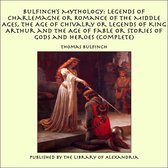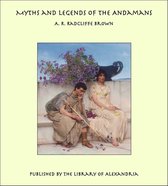Myths and Myth-Makers: Old Tales and Superstitions Interpreted by Comparative Mythology Ebook Tooltip Ebooks kunnen worden gelezen op uw computer en op daarvoor geschikte e-readers.
Afbeeldingen
Sla de afbeeldingen overArtikel vergelijken
- Engels
- E-book
- 9781465511492
- 24 februari 2021
- Adobe ePub
Samenvatting
THE ORIGINS OF FOLK-LORE. FEW mediaeval heroes are so widely known as William Tell. His exploits have been celebrated by one of the greatest poets and one of the most popular musicians of modern times. They are doubtless familiar to many who have never heard of Stauffacher or Winkelried, who are quite ignorant of the prowess of Roland, and to whom Arthur and Lancelot, nay, even Charlemagne, are but empty names. Nevertheless, in spite of his vast reputation, it is very likely that no such person as William Tell ever existed, and it is certain that the story of his shooting the apple from his son's head has no historical value whatever. In spite of the wrath of unlearned but patriotic Swiss, especially of those of the cicerone class, this conclusion is forced upon us as soon as we begin to study the legend in accordance with the canons of modern historical criticism. It is useless to point to Tell's lime-tree, standing to-day in the centre of the market-place at Altdorf, or to quote for our confusion his crossbow preserved in the arsenal at Zurich, as unimpeachable witnesses to the truth of the story. It is in vain that we are told, "The bricks are alive to this day to testify to it; therefore, deny it not." These proofs are not more valid than the handkerchief of St. Veronica, or the fragments of the true cross. For if relics are to be received as evidence, we must needs admit the truth of every miracle narrated by the Bollandists. The earliest work which makes any allusion to the adventures of William Tell is the chronicle of the younger Melchior Russ, written in 1482. As the shooting of the apple was supposed to have taken place in 1296, this leaves an interval of one hundred and eighty-six years, during which neither a Tell, nor a William, nor the apple, nor the cruelty of Gessler, received any mention. It may also be observed, parenthetically, that the charters of Kussenach, when examined, show that no man by the name of Gessler ever ruled there. The chroniclers of the fifteenth century, Faber and Hammerlin, who minutely describe the tyrannical acts by which the Duke of Austria goaded the Swiss to rebellion, do not once mention Tell's name, or betray the slightest acquaintance with his exploits or with his existence. In the Zurich chronicle of 1479 he is not alluded to. But we have still better negative evidence. John of Winterthur, one of the best chroniclers of the Middle Ages, was living at the time of the battle of Morgarten (1315), at which his father was present. He tells us how, on the evening of that dreadful day, he saw Duke Leopold himself in his flight from the fatal field, half dead with fear. He describes, with the loving minuteness of a contemporary, all the incidents of the Swiss revolution, but nowhere does he say a word about William Tell. This is sufficiently conclusive. These mediaeval chroniclers, who never failed to go out of their way after a bit of the epigrammatic and marvellous, who thought far more of a pointed story than of historical credibility, would never have kept silent about the adventures of Tell, if they had known anything about them. After this, it is not surprising to find that no two authors who describe the deeds of William Tell agree in the details of topography and chronology. Such discrepancies never fail to confront us when we leave the solid ground of history and begin to deal with floating legends. Yet, if the story be not historical, what could have been its origin? To answer this question we must considerably expand the discussion
Productspecificaties
Inhoud
- Taal
- en
- Bindwijze
- E-book
- Oorspronkelijke releasedatum
- 24 februari 2021
- Ebook Formaat
- Adobe ePub
- Illustraties
- Nee
Betrokkenen
- Hoofdauteur
- John Fiske
- Hoofduitgeverij
- Library Of Alexandria
Lees mogelijkheden
- Lees dit ebook op
- Android (smartphone en tablet) | Kobo e-reader | Desktop (Mac en Windows) | iOS (smartphone en tablet) | Windows (smartphone en tablet)
Overige kenmerken
- Studieboek
- Nee
EAN
- EAN
- 9781465511492
Je vindt dit artikel in
- Categorieën
- Taal
- Engels
- Boek, ebook of luisterboek?
- Ebook
- Beschikbaar in Kobo Plus
- Beschikbaar in Kobo Plus
- Beschikbaarheid
- Leverbaar
Kies gewenste uitvoering
Prijsinformatie en bestellen
De prijs van dit product is 4 euro en 99 cent.- E-book is direct beschikbaar na aankoop
- E-books lezen is voordelig
- Dag en nacht klantenservice
- Veilig betalen
Rapporteer dit artikel
Je wilt melding doen van illegale inhoud over dit artikel:
- Ik wil melding doen als klant
- Ik wil melding doen als autoriteit of trusted flagger
- Ik wil melding doen als partner
- Ik wil melding doen als merkhouder
Geen klant, autoriteit, trusted flagger, merkhouder of partner? Gebruik dan onderstaande link om melding te doen.








